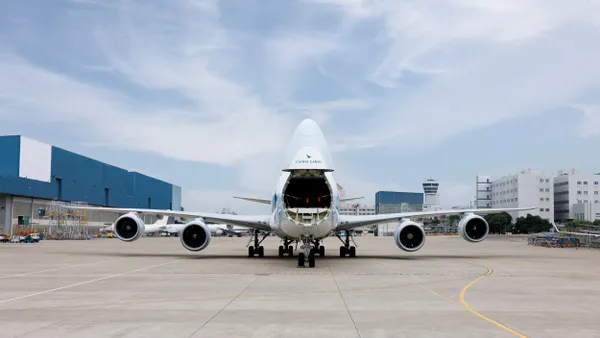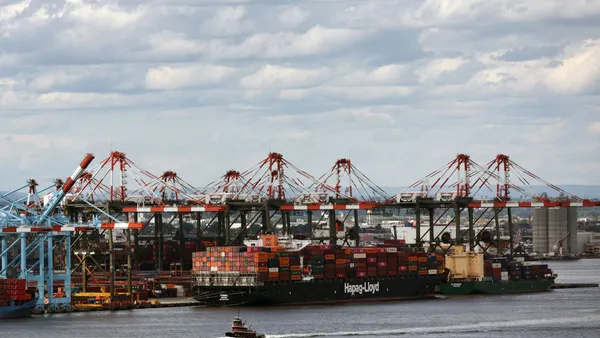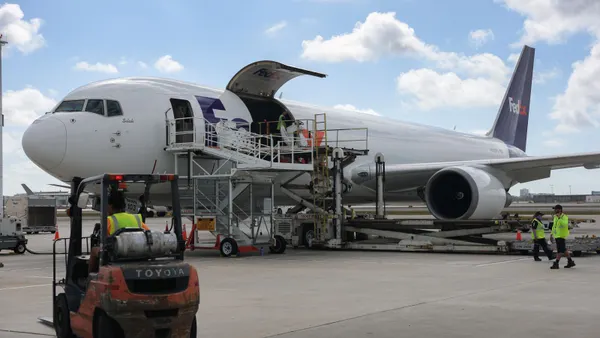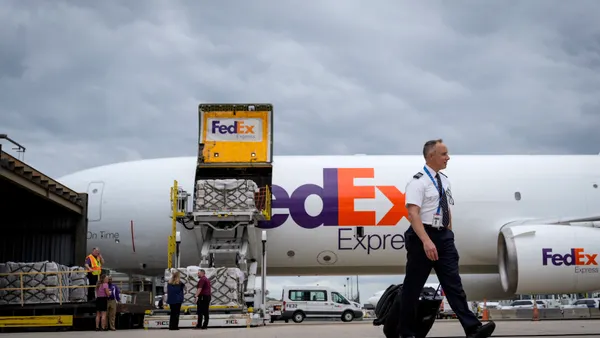Dive Brief:
- Global air cargo volumes rose 10% year over year in January due to early Lunar New Year shipments and a shift among shippers from sea to air due to conflict in the Red Sea, according to a Feb. 1 emailed report from Xeneta’s Clive Data Services.
- Despite the “surprise” uptick in demand, general air cargo spot rates in January declined 12% month over month to $2.27 per kilogram, Clive reported. January spot rates dropped 21% compared to 2023.
- “This is not consumers buying more, it is likely linked to Red Sea disruption as well as the upcoming Lunar New Year and some indicators that the general cargo market is busier than expected," Niall van de Wouw, chief airfreight officer at Xeneta, said in a statement. "We don’t see this reflected in rates but that’s not surprising in January because there’s not the same pressure on capacity."
Dive Insight:
Supply chains continue to be impacted by the Israel-Hamas war and the ensuing Red Sea crisis, which has prompted delays, higher shipping rates and longer transit times. In turn, shippers using ocean transport have moved some cargo volume to air to mitigate the risk of disruption.
“The situation in the Red Sea has brought nervousness to many supply chains and possibly encouraged some shippers to have a knee-jerk reaction, shifting to airfreight, bringing volumes forward, and securing capacity,” van de Wouw said in a statement.
Some of January’s cargo volumes can also be attributed to apparel shippers and manufacturing component producers driving a modal shift from ocean to air as they look to move volumes ahead of Lunar New Year, according to Clive.
But this doesn’t guarantee a long-term impact on air freight.
“Once the initial nerves and uncertainty subsides, stability will return once shippers simply accept that ocean freight may just take two weeks longer, causing the need for airfreight to then dwindle,” van de Wouw said. “I’m not hearing it is turning the airfreight market upside down like we saw, for example, during the ports strike on the US west coast.”
Despite the economic uncertainty caused by geopolitical tensions, van de Wouw noted that the air cargo market may want to focus on e-commerce, which lifted air freight volumes during the holiday season. In December, shipments from Shein and Temu drove air cargo demand up 5%.
While the Red Sea crisis won’t significantly impact e-commerce shipments, it did push air cargo demand into Europe in January as carriers diverted shipments, driving up costs, transit times and the possibility of container shortages.
“The market remains extremely difficult to predict,” van de Wouw added. “Let’s wait and see what happens in February when we might see air and ocean volumes as well as rates fall back if more stability returns to the market. But January was a strong slow month and, after a difficult year, the air cargo industry will not be complaining about starting the year on a positive note.”















